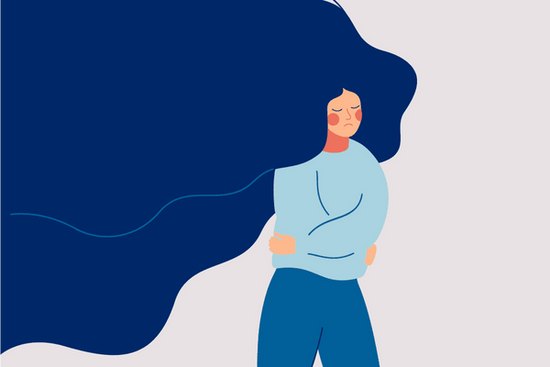
Schizoaffective Disorder and Dating: An Intimate True Story
Dating with schizoaffective disorder isn't easy. Stigma, misunderstanding, and fear can all strain even the strongest relationships. In this personal story, we explore what happens when love, intimacy, and a misunderstood mental illness collide.
I thought we were choosing rings — then he told me I was “unsuitable to be a wife.” This is the story of schizoaffective disorder and cheating, stigma, and silence.
Caught between love and betrayal, I learned what it means to navigate marriage, intimacy, and mental illness when the people closest to you don’t believe you deserve either.
From chronic illness to visions of fire, this is what it feels like to live through schizoaffective disorder and relationships in a world that punishes invisible pain.
Cheating, Stigma, and Mental Illness in Relationships
Dating with Schizoaffective Disorder: Love, Class, and Stigma
My husband and I had been together one-month shy of a year. We had been talking about marriage for about three months prior, and now we excitedly yet nervously looked at rings together online. I had simple, elegant, vintage tastes, whereas his was gaudier. He had told me he wanted to purchase a 3-carat alexandrite ring the following week.
Factually speaking, my husband is old money. I am not. Our whole story was the process of me becoming Cinderella – I was a girl from a moderately middle-class family with a solid work ethic and a debilitating mental illness: schizoaffective disorder — the same condition that would come to shape our dating and intimacy.
He was a trust funder with a high-paying engineering job, fiercely intelligent yet gentle and kind. I had met his family once and gotten ill and had to leave.
He assured me it was fine. In the interim of us getting to the rings-and-things bit, I hadn’t spoken more than two sentences to them. But I did have a sense of foreboding doom about them putting on airs when they came to drop off presents. They didn’t say a word to me, despite us being together longer than any of his other girlfriends.
"Dating someone with schizoaffective disorder requires compassion and empathy."
Dating Someone with Schizoaffective Disorder and Chronic Illness
At this point, I had been vomiting every night for exactly two years. The following summer, I would receive a fibromyalgia diagnosis, and even more shit would hit the fan. My point is, I was chronically ill without a diagnosis at that point in time, and every time I was sick, my husband would put me on the phone with his mom, who was a pharmacist. What I didn’t know was that she was gathering data.
On top of my chronic vomiting and pain, I have schizoaffective disorder, which is on the schizophrenia spectrum. Schizoaffective disorder is so stigmatized even in mental health communities; it’s not even on the bottom rung of the ladder.
"The more you know about schizoaffective disorder and relationships, the more you can have compassion and empathy for your partner. "

Can Someone with Schizoaffective Disorder Have a Healthy Relationship?
I recall being in Intensive Outpatient Programs, where people would recount traumas inflicted by schizophrenics and how evil such people were. Shame is the best word I could describe what I felt, and so I mostly kept my diagnosis secret.
My future mother-in-law had a list of my psych meds to check for drug interactions while looking for pain and anti-nausea medications. I never wanted to disclose such information, as I had been diagnosed with schizoaffective disorder when I was 12 and knew how to call my local Walgreens. But my husband insisted, and I obeyed.
I always felt that trying to navigate relationships with schizoaffective disorder — especially with family and friends — was incredibly difficult. And in my heart, I was convinced that successfully combining schizoaffective disorder and romantic relationships was an impossible undertaking. I kept asking myself, can someone with schizoaffective disorder love another person fully?
For my husband, dating someone with schizoaffective disorder meant he needed to learn about some of the symptoms of the disorder that might present themselves in our relationship.
He especially needed to understand that the sign and symptoms of schizoaffective disorder weren’t about him, they were about me and my condition.
My symptoms were a mix of behavioral, physical, cognitive, and psychosocial ones.
Some of my symptoms included: disordered thinking, disturbed sleep, being withdrawn, lack of interest in intimacy and sex, difficulty concentrating, feeling overwhelmed, manic episodes, unpredictable moods, and insecurity and doubt. Just to name a few.
"I always felt that building a romantic relationship while living with schizoaffective disorder was nearly impossible."
Schizoaffective Disorder and Marriage: Stigma, Faith, and Betrayal
The week came for my husband to purchase the engagement ring. My whole body was so aflutter; I felt myself float up to the moon. Schizoaffective disorder and marriage and me was actually going to happen. Then I got a phone call.
“My mom received a letter from an elder’s wife saying I can’t marry you,” He said softly.
“What? Why?” I was sure he was going to kick this down.
“Because she thinks schizoaffective disorder relationships won’t work. You are depressed so she is convinced you are unsuitable to be a wife. I won’t purchase the ring.”
I didn’t fight him. That was the literal receiver click in my mind.
This was the ultimate betrayal of our relationship. We had spent so much time working through potential and actual schizoaffective disorder and intimacy issues.
But loving someone with schizoaffective disorder clearly wasn’t enough for him. It turned out that my husband’s mom had consulted professionals about my medical problems. They had all warned her against the match between my husband and me: Apparently, a healthy marriage with schizoaffective disorder isn’t possible!
What really hurt was that the order came from a church official, and I was a preacher’s daughter. And what hurts, even more, was that my husband was obeying. Was this Christianity in action? It was definitely an issue of stigma!
Is Schizoaffective Disorder a Barrier to Love and Marriage?
My biggest fear about combining schizoaffective disorder and intimacy was losing someone I loved because of something I couldn’t control, like my mental illness or my physical health.
I knew that schizoaffective disorder in relationships was an added layer of complexity, but ending an intimate relationship because of it was soul destroying.
A black veil descended between my husband, myself, and a lake of fire between my mother-in-law and myself.
Six months later, my husband proposed to me. His mother still believed that schizoaffective disorder and marriage was not a viable mix for her son. And his sister insisted I was a gold digger. But I still said yes. But the tear in my heart was still there, as it is today.
The six months between that December when he was going to purchase the ring and June were some of the worst of my life. I even began to believe that healthy romantic relationships with schizoaffective disorder were simply not possible.
But I would pray to God to forgive my husband-to-be, my mother-in-law, and myself, for unforgiveness and needing forgiveness, every five minutes, and then break down crying.
I kept asking myself: How do you honor your parents when they are emotionally abusive? What happens when their intent is kindness, but the impact in relationships is cruelty, shame, and abandonment? And how do you explain that beneath my rage and silence was an invisible disability and social anxiety I’d spent a lifetime trying to hide?
Then my schizoaffective disorder kicked in, and I saw visions of fire and my in-laws casting flames at me. Then, the pain came. Deep, burning, intolerable pain.
Schizoaffective Disorder, Disability, and the Loneliness of Stigma
We all suffer for romantic relationships, for intimacy, for love. But what does it say about a society that we should suffer because of our disabilities? That those of us with schizoaffective disorder should be condemned by a society to a life of loneliness.
It is an ugly world, a blind world, unable to see that a beautiful, fit, blonde able-bodied young woman can turn into a mound of fleshy pain in a matter of years.
As we age, we all experience pain and disability. Disability comes for us all, but most of us would rather not acknowledge it, or think we’ve earned our stripes – why should the young and in love deserve the rigors of the old?
"Schizoaffective disorder and romantic relationships are possible."







